The UUCN is proud to be partnering with the Centre for Postdoctoral Research in Infrastructure, Cities and Energy (C-DICE) and the UK Science and Innovation Network in UAE to deliver a scholarship programme for early career researchers to attend COP28.
We’ve awarded ten scholarships to early career researchers from across the UK with diverse research backgrounds. They will be attending COP28 to gain an understanding of the process collaborate with climate change experts from around the world.
Dr Elina Apine
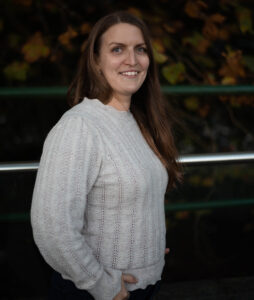
Dr Elina Apine is a Postdoctoral Research Associate at the University of St Andrews, Scotland.
Elina’s research focus is the climate change impacts on coastal and marine social-ecological systems and community adaptation strategies responding to environmental changes. Her current work explores the opportunities and barriers to implementing nature-based solutions for flood protection.
Elina is also passionate about small-scale fisheries and aquaculture and their contribution to livelihoods and food security for vulnerable coastal communities. While studying for her Ph.D. at the University of Plymouth, Elina examined whether small-scale mud crab fisheries and aquaculture can be sustainable livelihood resources for fisher communities in South India.
Speaking about her forthcoming visit to COP 28, she said: “COP28 offers an excellent opportunity for me to develop relationships and build networks with decision-makers, the research community, and NGOs.”
Dr Mudasir Yatoo
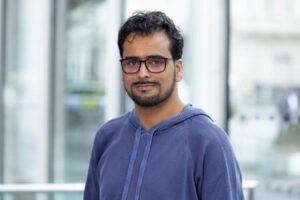
Dr Mudasir Yatoo is a Postdoctoral Researcher at Imperial College in London.
Mudasir is particularly interested in technology driven public policy disruptions and has been appointed as the Imperial-Tsinghua University Global Fellow on Climate Change and Energy.
Mudasir previously worked on Lithium-ion batteries, concentrating on their power density optimisation – a key challenge for battery-powered electric vehicles.
Presently, he is a Research Associate at the Department of Materials working on proton oxide conductors. The work is funded by the European Union – 4.4 million USD – and involves seven European consortium partners. Mudasir’s current work involves the study of proton-conducting materials for hydrogen compression and storage applications. He also supervises MEng and PhD students with a core focus on materials for low-carbon/carbon-free devices including fuel cells, electrolysers and proton reformers.
Speaking about COP 28, Mudasir said: “I’d like to see a clear commitment to phase out fossil fuels. Equally significant would be the sorting our of the loss and damage fund.”
Dr Zulfia Abawe
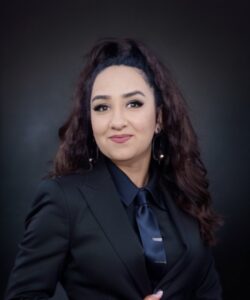
Dr Zulfia Abawe is a researcher and lecturer in Global Business at the University of South Wales. Her experience encompasses roles as a Lecturer, Cohort Lead, Policy Advisor to senior government officials, Analyst, and Researcher.
Zulfia’s teaching and workshops centre around ethical and legal aspects of technology, leadership, globalisation, and the organisational behaviour of multinational corporations.
Dr. Abawe has secured the esteemed Taith Funding opportunity, enabling her to embark on a week-long collaboration with scholars at Swisspeace in Switzerland in March 2024.
In addition to her extensive research and teaching background, Dr. Abawe is deeply motivated to attend COP28, recognising it as a transformative platform for global engagement in addressing climate change. As a lecturer in Global Business, she is committed to educating and inspiring the next generation to become catalysts for change in the global fight against climate change.
Commenting on COP 28, Zulfia said: “Attending COP28 will enrich my research, shape climate policies and enhance my teaching impact in promoting climate action. I am particularly interested in learning how to address disparities in how climate change affects vulnerable populations, particularly women in developing countries.”
Dr Tess O’Hara
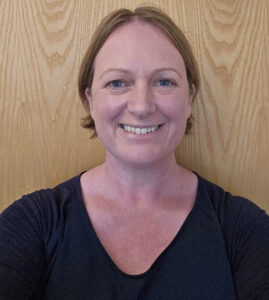
Dr Tess O’Hara is a Postdoctoral Researcher at Newcastle University.
Tess lecturers in Civil Engineering with the Water Group at Newcastle University, where she teaches students, and runs tailored training courses for industry, providing the necessary skills for working with environmental data to respond to climate change.
Tess’s research includes the use of citizen science data for flood hazard mitigation. She works on collaborations with academics and industrial partners including the Met Office, engineering firms, national infrastructure operators and local and national government.
Speaking about her forthcoming visit to COP 28, Tess said: “I do my best to equip current and future generations of engineers with skills and knowledge to create a more sustainable future. I think that interdisciplinary and participatory solutions are critical to success.”
Dr Ben Howard

Dr Ben Howard is an environmental scientist at Imperial College, with research interests in water, climate and society.
Ben works with UNESCO, Save the Children and WMO to organise conferences and courses on climate change adaptation, and has worked in sub-Saharan Africa to put his work into practice.
Innovative technologies are at the centre of Ben’s research. he is developing Internet of Things (IoT) sensors to measure key hydrological variables, like precipitation and stream flow, in real-time. Ben has deployed these systems in the UK and in Africa to provide flood early warnings.
Commenting on COP 28, Ben said: “I want to develop relationships with key stakeholders to drive equitable adaptation to climate change and water challenges. COP28 will provide a launch pad for me to develop these relationships. Visiting COP will also hopefully help me to produce research deliverables that are more actionable for national and international decision makers.”
Dr Sarah Redicker

Dr Sarah Redicker is a postdoctoral research associate at the University of Exeter.
Sarah’s research is focused on looking at the impacts of climate change with regards to migration, mobility and immobility. Sarah is also passionate about the use of water for agriculture and the importance of irrigation to food security in water-scarce environments.
Situating her work at the crossroads of development studies, economics, and geography, she contributes her expertise to two projects – the HABITABLE project funded by Europe Horizon and the SUCCESS project funded by FCDO and IDRC. These projects are dedicated to exploring the nuanced dimensions of climate change adaptations, with a central emphasis on migration, mobility, and immobility.
Reflecting on why visiting COP is important to her, Sarah said: “COP28 provides me with an excellent opportunity to cultivate connections and build networks with decision-makers, researchers and other key stakeholders.”
Dr Cristina Ruiz Villena
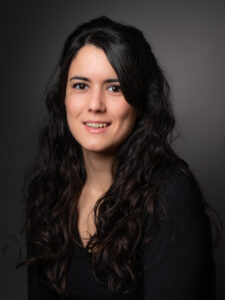
Cristina Ruiz Villena is an Earth Observation (EO) scientist with an interest in environmental Digital Twins (DTs) applied to climate science, the carbon cycle, methane emissions, outreach and policy. She is currently a Postdoctoral Research Associate at the National Centre for Earth Observation (NCEO) at the University of Leicester (UK), where she also completed her PhD.
Cristina is now part of the Carbon-Climate research group and her current work focuses on developing machine-learning emulators of land surface models for Digital Twin applications. She is particularly interested in the topics of food security, agriculture and water in Africa and heatwaves in Europe, as well as how models and EO data can help inform decision making for climate adaptation around the world.
Besides her research interests and experience, Cristina is enthusiastic about outreach, science communication and policy, and regularly takes part in events such as community days and public talks, engaging with a variety of audiences.
Speaking about her visit to COP 28, she said: My main hopes are for stronger and more ambitious commitments from countries to reduce emissions, the operationalisation of the ‘Loss and Damage’ fund, bigger climate finance commitments, and stronger, language that clearly states the need to ‘phase out’ fossil fuels.”
Ruth Jihyung Joo

Ruth Joo is a PhD researcher at the university of Leeds.
Ruth’s research focuses on the social and political dimensions of global climate policy and governance. Her research interest is to understand how various actors construct their discourse and activities to influence global climate policy in both formal and informal settings. Ruth intends to investigate in what ways and in what outcomes the university actors are influencing climate negotiations. In doing so,she hopes to identify the drivers and barriers for their engagement and suggest ways they can contribute more effectively to future climate negotiations.
Commenting on COP 28, Ruth said: “The evolution of global climate policy is shaped by actors representing diverse purposes, interests, and powers. Climate negotiations are the forums where these actors meet, constructing their discourses and actions to establish and change international rules and institutions.
“Participating in COP 28 is a privilege for me because it allows me to better understand the UNFCCC process by meeting and talking to the university actors whom I aim to investigate.”